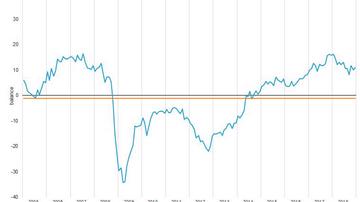
6 February is the Safer Internet Day, this year under the slogan Create, Connect and Spread Respect: a safer Internet starts with you. The purpose is to encourage Internet users to create a friendlier Internet and to communicate via the Internet in a respectful way, which is especially important at the time of fake news, online bullying and harassment.
In the first quarter of 2017, 68% of individuals aged 16–74 years used the Internet every day or almost every day (in EU-28: 72%). What kind of e-skills, which enable the usage of information-communication technologies (ICT), have individuals aged 16–74 years? E-skills cover knowledge and skills that are measured with individual activities, which are connected with the usage of ICT. E-skills are composed of four sets of e-skills: information, communication, problem-solving and software e-skills.
More than a fifth of individuals without e-skills
In 2017, 30% of individuals aged 16-74 years had above basic e-skills (in EU-28: 31%), 24% had basic e-skills (in EU-28: 26%), 24% had low e-skills (in EU-28: 26%) and 22% had no e-skills (in EU-28: 17%). The review of the data by the activity status of the individuals shows that the share of individuals with no e-skills was the highest among retired and other inactive (56%); 26% of unemployed individuals also had no e-skills.
The level of mastering e-skills by individual groups
Information e-skills: from searching information to storage of data on the Internet
Information e-skills enable identification, search, getting, storage and analysis of digital information and judging their relevance and purpose. 75% of individuals aged 16–74 years had information e-skills (in EU-28: 78%); 68% above basic (in EU-28: 68%) and 7% basic information e-skills (in EU-28: 10%).
69% of individuals searched for information about goods or services on the Internet (in EU-28: 65%), 57% copied or moved files or folders (in EU-28: 60%), 54% searched for health-related information (in EU-28: 51%), 47% obtained information on e-government websites in the period of 12 months (in EU-28: 41%) and 26% used storage space on the Internet (in EU-28: 30%).
Communication e-skills: from sending e-mails, participation in social networks to telephoning over the Internet
Communication e-skills enable communication with the help of the digital technologies that enable sharing of information and various contents (images, text and audio-visual content) with other individuals. 74% of individuals aged 16–74 years had communication e-skills (in EU-28: 79%); 54% above basic (in EU-28: 61%) and 20% basic communication e-skills (in EU-28: 18%).
69% of individuals received or sent e-mails (in EU-28: 72%), 45% participated in social networks (in EU-28: 54%), 37% telephoned or made video calls over the Internet (in EU-28: 39%) and 28% uploaded self-created photos, videos, text to websites (in EU-28: 33%).
Problem-solving e-skills: from online shopping, e-banking to installing software or applications
Problem-solving e-skills enable solving of technical, conceptual problems by using digital means and enable knowledge of web services. 67% individuals aged 16–74 years (in EU-28: 75%) had problem-solving e-skills; 49% above basic (in EU-28: 55%) and 18% basic problem-solving e-skills (in EU-28: 20%).
53% of individuals transferred files or folders between computers or other devices (in EU-28: 55%), 46% purchased online in the period of 12 months (in EU-28: 57%), 39% used Internet banking (in EU-28: 51%), 34% installed software or applications (in EU-28: 48%), 21% sold products or offered services over the Internet (in EU-28: 19%), 18% changed the setting of any software, including operational systems or security program (in EU-28: 29%), 15% used online learning material (in EU-28: 14%), 6% communicated with instructors or students via educational websites or portals (in EU-28: 8%) and 5% did an online course (in EU-28: 7%).
Software e-skills: from the usage of word processing software, spreadsheet software to writing code in a programming language
Software e-skills enable the usage of software to create or edit various content, programming. 57% of individuals aged 16–74 years (in EU-28: 60%) had software e-skills; 41% had above basic (in EU-28: 41%) and 16% basic software e-skills (in EU-28: 19%).
54% of individuals used word processing software (in EU-28: 53%), 45% spreadsheet software (in EU-28: 38%), 32% advanced functions of spreadsheet software (filtering, to organise data, usage of formulas) (in EU-28: 25%), 32% software to edit photos, video or audio files (in EU-28: 36%), 33% created presentations or documents with integration of text, pictures, tables or charts (in EU-28: 36%) and 4% wrote code in programming language (in EU-28: 6%).

































































